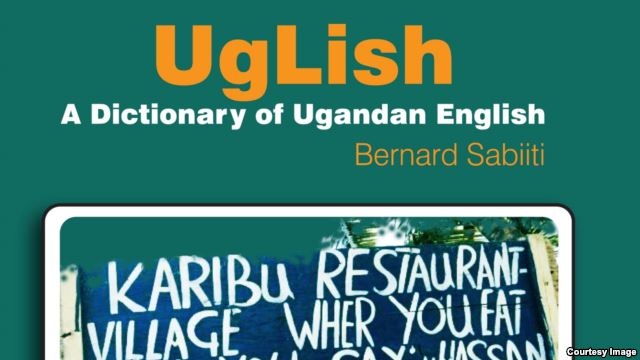VOA慢速英语: “乌干达式英语”字典在乌干达应运而生

The official language in Uganda is English. But visitors to this African country soon recognize that the English spoken here is different from British or American English. Ugandan English has as a strong, local flavor. For example, what does it mean when someone orders a "rolex" at a food stand or "beeps" someone on the telephone?
To make life easier for foreigners in Uganda, linguist Bernard Sabiiti made a small dictionary. It is a helpful guide for those interested in understanding Ugandan English, also known as Uglish.
"There are certain periods when Ugandans coin words. And one of those (is) the election seasons. You know, there are politicians here whose entire vocabulary almost is ‘Uglish.' And they are very successful people in this country, who cannot actually use Standard English. So at first I thought, you know, why don't I actually do something about this and let the outside world know why we speak the way they do?"
He notes that, from businesspeople to high-level politicians, nearly everybody in Uganda uses Uglish.
"There are over 40 languages spoken in this country and over 60 ethnic groups. So you find that, you know, every small group takes up the English language and make it their own. And you end up with a very unique, some people call, strange variety of English. "
So what are some of the strange things Ugandans say?
"When a Ugandan has not seen you for a while, like we are meeting after a long time, the first thing I tell you is that: you are lost'. It doesn't mean that you are in a wrong place, it simply means, I haven't seen you in a while.' And also you'll find that we use the word ‘please' a lot. You'll find that the word please is used in very strangecircumstances where a foreigner would not be expecting it. For example, I can say, ‘thank you, please.'"
But does everyone speak the same Uglish? Reporter Serginho Roosblad went to the streets of Uganda's capital, Kampala, to find out.
Uglish is a dictionary of Ugandan English by Bernard Sabiiti
Reporter: "If I would say, ‘you are lost', what would that mean in Ugandan English?"
Man: "Ugandan English....eh...it would mean...no, no, I don't know really."
Woman: "You're lost, it means, in case you've taken long to see someone, it means you're lost."
Reporter: "And what's a rolex?"
Man: "A mixture of chapatti and eggs. It's just chapatti fried, I mean eggs fried and then they're rolled in a chapatti to make that whole thing of rolled eggs. It was rolled eggs, but they just made it rolex."
Reporter: "So it has nothing to do with a watch?"
Man: "Oh, no, no, no, nothing at all..."
Bernard Sabiiti says Uganda's public education system does not do enough to teach students how to read and write in Standard English.
"In the course of my research, I realized that actually this is also a class issue. This is a class thing. You find that the middle classes, the people who have a lot of money, and they send their kids to these private, expensive schools, where their kids are told to where, where they have access to reading materials. You find that those people, those students, end up being able to speak far more Standard English, than these ones who are going through the public schools which are poorly funded, where text books are not enough. Because you know, one of the reasons is that Uglish is increasing every year is that the reading culture, reading culture is very, very, poor in this country."
And that may be why there is a popular saying in Uganda, "If you want to hide a treasure, hide it in a book."
Mr. Sabiiti does not think "Uglish" will ever replace more widely accepted forms of English. But he does think "Uglish" will gain a few more expressions since Uganda is preparing elections.
I'm Adam Brock.
Reporter Serginho Roosblad in Uganda prepared this story. Adam Brock wrote it for Learning English. George Grow was the editor.
______________________________________________________________
Words in This Story
linguist – n. a person who studies language
Standard English – n. the form and style of the English language that is accepted as the norm in an English-speaking country
coin – v. to create something (like a word or phrase) that other people begin to use
circumstance – n. a condition or fact that affects a situation
chapatti – n. a kind of flatbread
- 频道推荐
- |
- 全站推荐
- 推荐下载
- 网站推荐




















